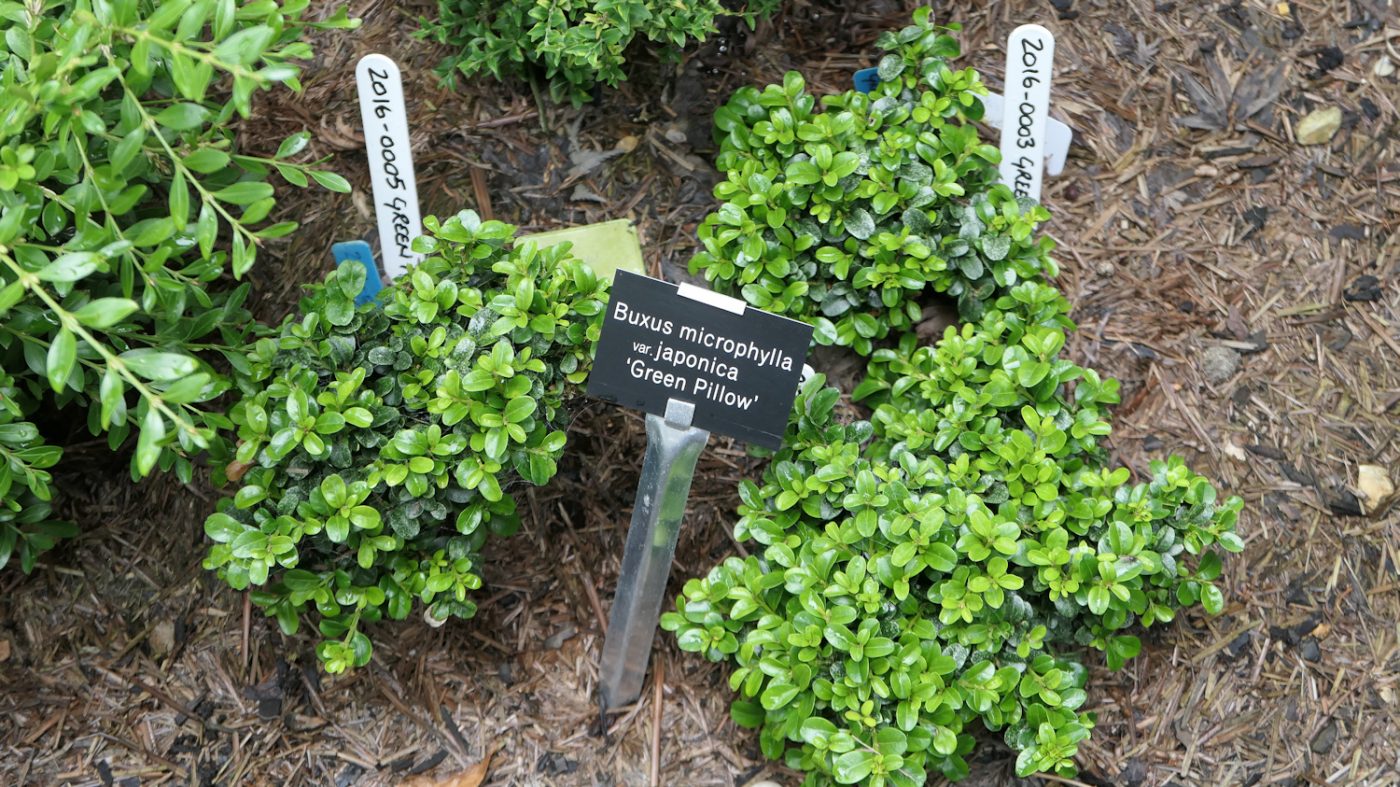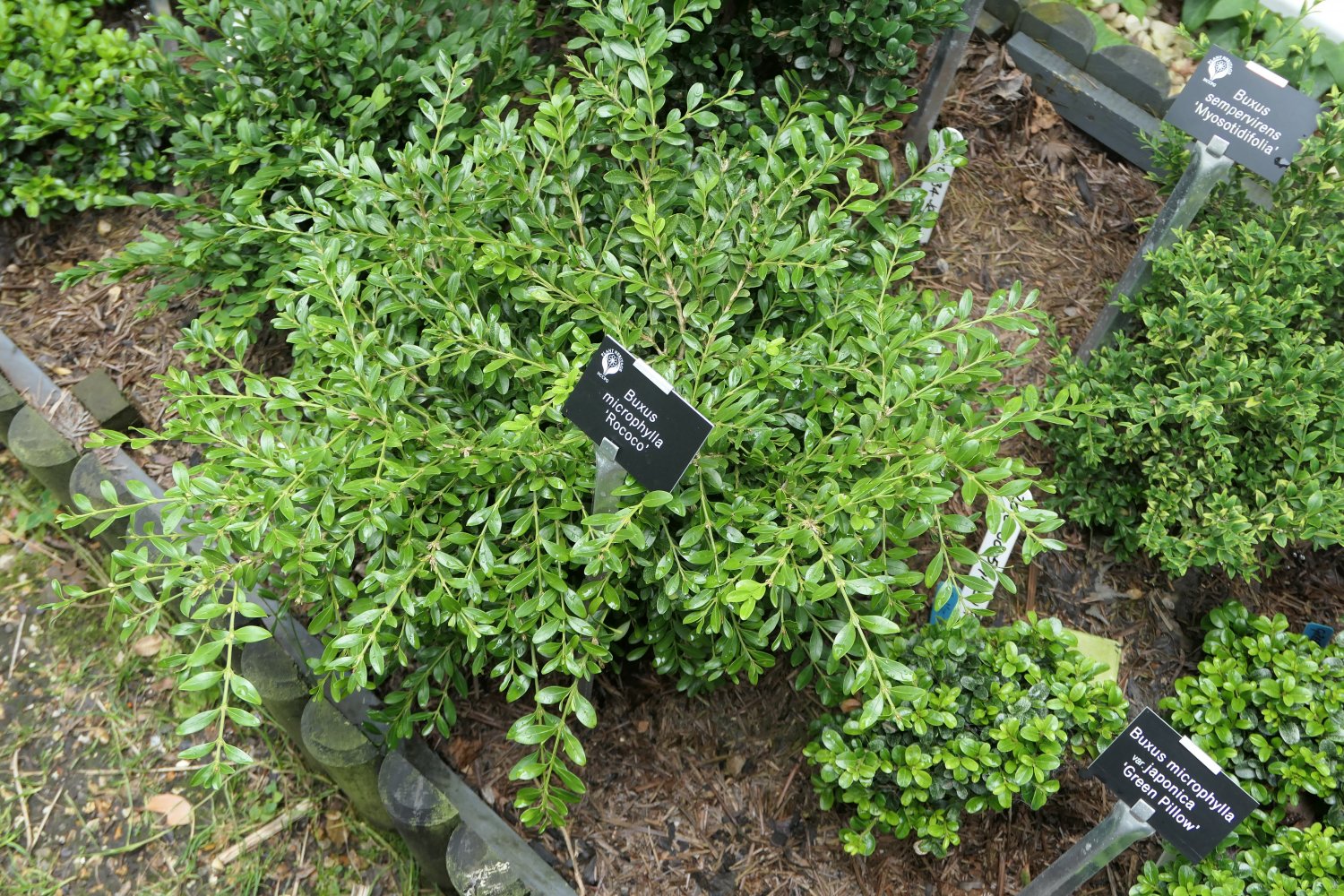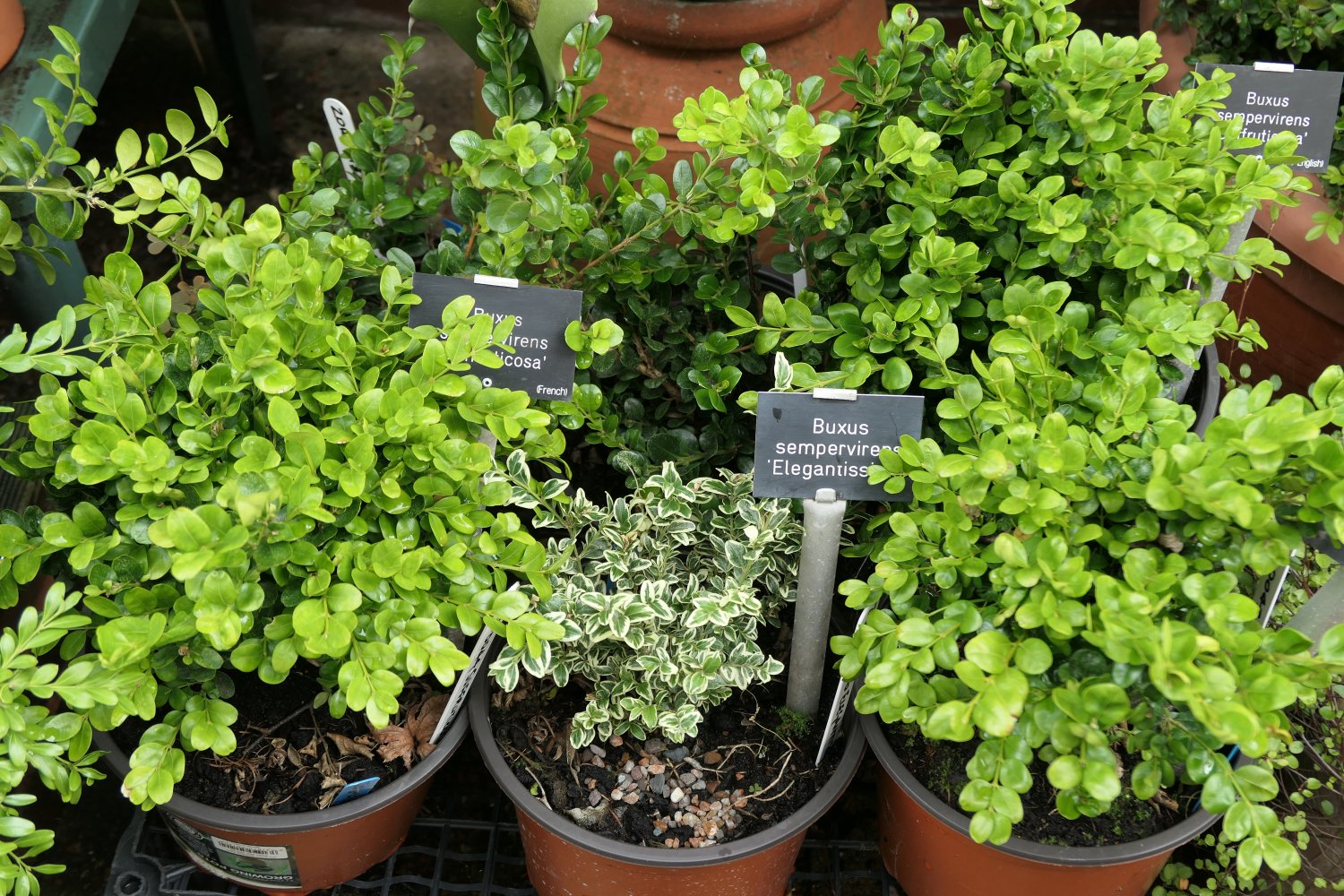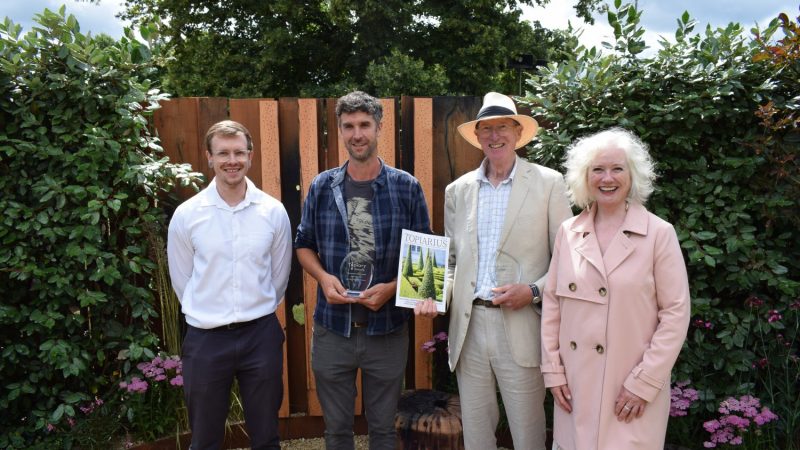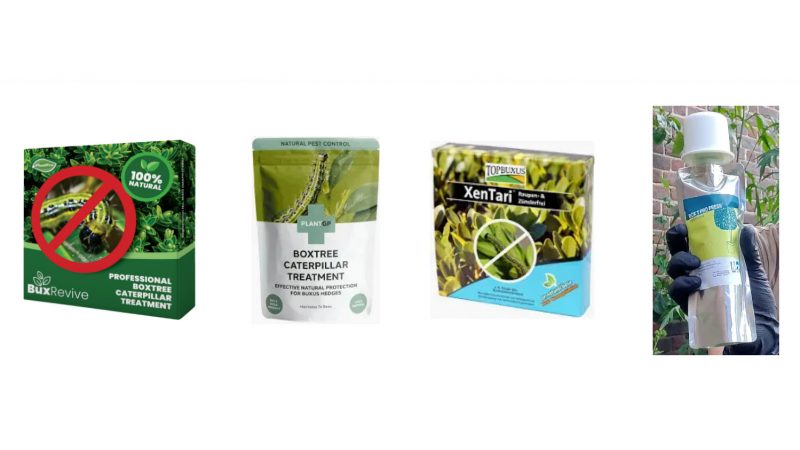Buxus National Collection Update
By Andrew Napier, collection curator
Here at home the Plant Heritage National Collection official records show the following:
- 138 taxa
- 129 cultivars
- 11 species
- 325 accessions
Add to this literally dozens of propagations in trays and P9 pots and you can see it is quite an undertaking.
Covid obviously really put an end to any progressive work, so it has been static now for a long while. Most activity has been the obvious battle with predators and diseases etc, and particularly last summer – seemingly endless hours at the end of a hose attending to the needs of c 200+ potted specimens. This year watering has been a lot less demanding for obvious reasons. ( Like now for instance I am sat indoors waiting for the latest shower to cease !)
I have had good contact with Lynn Batdorf who is reviewing our collection data – particularly the 50+ cultivars from the Esveld catalogue. Maybe next year he will visit here as part of his European excursion and do some verifications etc as part of his encyclopaedia rewrite. Later this year Didier Hermanns at Herplant BV has offered to send plants from their blight resistant BetterBuxus range to add to the collection (BetterBuxus plants are now available in the UK via EBTS UK members Paramount Plants).
Problems this season with the collection – blight – but well controlled. The caterpillar though is an issue. No definite waves of moth activity – just continuous presence. Am about to do 4 spray of this season as soon as weather allows.
Have been to Langley (former home of the national collection) a couple of times recently. The owner, Ashley, has been very generous with support – and has given us loads of troughs and planters, and also all the stock of professional labels from the former National Collection. We hope to go up there again later this year and take cuttings of the most desirable cultivars.
Am anticipating a review imminently by Rosie Yeomans, Plant Heritage Collections Co-ordinator for Hampshire and IOW to assess whether the collection merits its current status. Hopefully it will pass the test.

